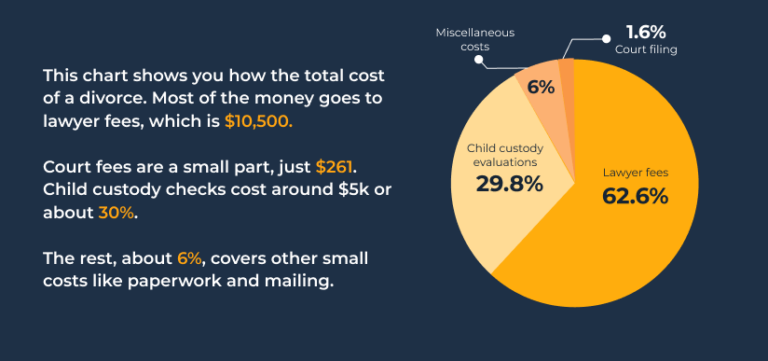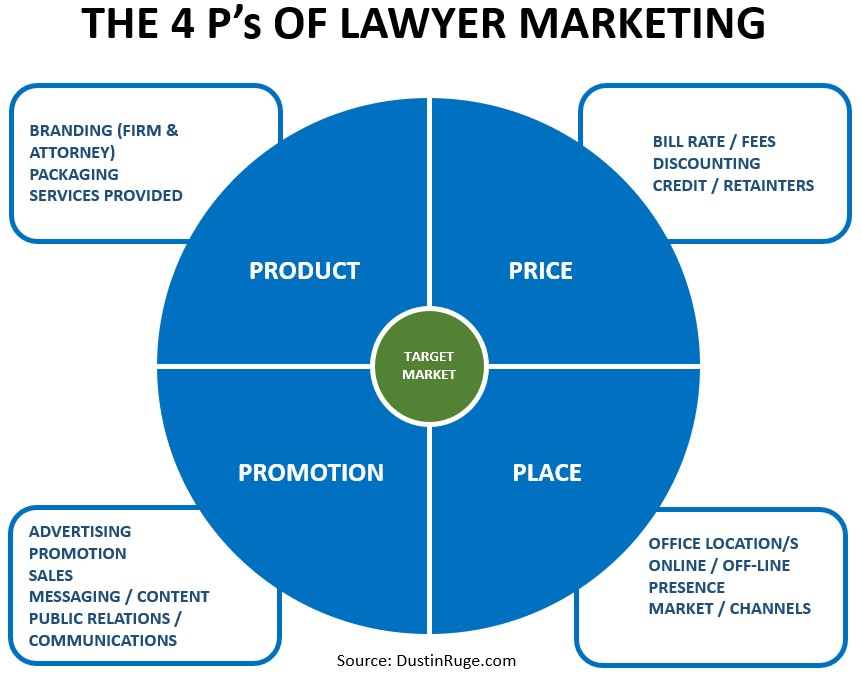
8 KEY CHALLENGES CONSUMERS FACE IN FINDING THE RIGHT LAWYER
Posted on May 2, 2024 by Law Leaders
8 KEY CHALLENGES CONSUMERS FACE IN FINDING THE RIGHT LAWYER
The average consumer will only need legal help around 4-6 times during their lifetime, which means that what YOU KNOW about the legal industry as an attorney is MOSTLY UNKNOWN to the average consumer when they have a legal need. Legal industry terms like “practice areas,” “retainers,” “contingency fees,” “mediation,” “arbitration,” and the like are not words used by the average consumer and therefore tend to make most people apprehensive when considering hiring an attorney.
This is why when it comes to attorney advertising to consumers, there is often a stark disconnect between how attorneys are selling their services and how consumers perceive them. This often leads to a high level of apprehension and confusion in the minds of consumers, and when it comes to sales, a confused mind always says “NO.”
So, how can you overcome these challenges and make them work to your advantage when trying to reach out to consumers? To best answer this question, let’s look at the 8 primary challenges consumers face when finding a lawyer and things you can do to help overcome them…
1.) COMPLEXITY OF LEGAL ISSUES:
According to a survey by LegalZoom, 80% of respondents stated that they would prefer to handle legal issues themselves rather than seek professional help, indicating a perceived complexity or lack of understanding of legal matters. This happens because legal matters can be complex and unfamiliar to many consumers, making it challenging to identify the specific type of lawyer they need and case they may have. Without a clear understanding of their legal issue and the relevant practice areas, consumers may struggle to find a lawyer with the appropriate expertise.
Ways to help consumers address this issue:
– Offer educational resources: Provide informative articles, legal blog posts, or FAQs on your website to help consumers understand common legal issues and identify the type of lawyer they need.
– Simplify explanations: When communicating with potential clients, use plain language and avoid legal jargon to make legal concepts more accessible and understandable.
– Provide FREE initial consultations: Offering free or low-cost initial consultations to discuss potential legal matters is crucial. Many attorneys overlook the fact that the primary obstacle for consumers contemplating legal services is understanding the cost. Given the uniqueness of most cases, conducting individual case reviews is essential. This not only enables consumers to anticipate costs beforehand but also provides an excellent opportunity for attorneys to showcase their skills to prospective clients. Even if support staff are needed to conduct initial case reviews as part of the pre-screening process, it can greatly benefit both parties involved.
2.) LACK OF LEGAL KNOWLEDGE:
Many consumers have limited knowledge of the legal system and may not know where to start when seeking legal assistance. Without understanding their rights, obligations, and available legal options, consumers often feel overwhelmed and unsure of how to find a suitable lawyer. A survey conducted by Avvo found that 60% of consumers do not know where to find legal information, suggesting a lack of awareness of available resources for legal assistance.
Ways to help consumers address this issue:
– Educate clients: Take the time to explain legal concepts and procedures to clients in a clear and understandable manner during initial consultations and meetings. It may intuitively seem important to speak in legal jargon to help gain credibility and trust but if consumers cannot understand the simple concepts behind them, they will be confused and less willing to move forward.
– Provide resources: Offer informational materials, such as brochures, pamphlets, videos, etc. that explain basic legal rights and processes relevant to your practice area.
– Maintain an informative website: Create a website with educational content, especially educational videos, that helps clients understand their legal rights, obligations, and options. Remember: in today’s mobile-first world, most people want to watch and not read on their phones and that is why video is so important.
3.) DIFFICULTY IN ASSESSING LAWYER CREDENTIALS:
Consumers often find it difficult to assess the credentials and qualifications of different lawyers. While some consumers may rely on referrals from friends or family members, others often struggle to evaluate factors such as a lawyer’s experience, track record, and reputation within the legal community. Attorneys have historically tried to distinguish themselves using terms like “AV-Rated” and “AVVO rated” that most consumers outside the legal industry do not understand. The American Bar Association reports that 40% of consumers find it challenging to determine if a lawyer has the necessary experience to handle their legal matter, highlighting the difficulty in assessing lawyer credentials and expertise.
Ways to help consumers address this issue:
– Showcase your credentials: Highlight your qualifications, experience, and achievements prominently on your website and marketing materials.
– Provide client testimonials: Display testimonials from satisfied clients to demonstrate your track record and reputation within the legal community. Most attorneys do not realize that the third most active page on an attorney website is typically their testimonials page, when present.
– Offer free consultations: Give potential clients the opportunity to meet with you and/or your staff to ask questions about your experience and qualifications WITHOUT FEAR AND OBLIGATION.
– Leverage Co-Branding Services: When consumer brands are relatively unknown or weak, which is commonly the case with most local lawyers, more intuitive co-branding is an effective means to help stand-out from the competition. When we created Law Leaders, our goal was to help identify, promote, and connect the top lawyers in the US with consumers. Our members leverage our brand, advertising, resources, and unique buying power together with their practice to help better generate more and better clients and cases and a higher return on investment. Learn More Here
4.) COST CONCERNS:
The cost of legal services is a significant consideration for many consumers. Many consumers are hesitant to seek legal assistance due to concerns about affordability, while others may struggle to compare pricing structures and determine the most cost-effective option for their needs. According to a survey by FindLaw, 59% of respondents cited cost as a significant factor when deciding whether to hire a lawyer, indicating a common concern about the affordability of legal services.
Ways to help consumers address this issue:
– Offer transparent pricing: Clearly outline your fee structure and billing practices upfront to help clients understand the costs associated with your services.
– Provide fee options: When applicable, offer flexible payment options, such as flat fees, payment plans, or contingency fees, to accommodate clients with varying financial situations.
– Discuss costs openly: During consultations, discuss potential costs and fees openly and address any concerns or questions clients may have.
– Sell your services based on value over cost: Anytime somebody buys something, including legal services, they are evaluating their decisions based on a cost/benefit analysis. Without clearly articulating the true value of the legal services you are providing to each client and what they stand to gain (or lose), they will make their decisions primarily on costs and their ability to pay – irrespective of their case.
5.) LIMITED ACCESS TO INFORMATION:
Contrary to what you might believe, access to reliable information about lawyers and their services is limited, particularly for consumers who are not familiar with all of the different legal resources that exist today online and how best to navigate them. Without access to comprehensive and transparent information, consumers often struggle to make informed decisions about which lawyer to hire. Research by the Legal Services Corporation found that 71% of low-income households experienced at least one civil legal problem in the past year, yet only 20% sought assistance, suggesting a lack of awareness or access to information about available legal resources.
Ways to help consumers address this issue:
– Improve your online presence: Maintain an up-to-date website with comprehensive information about your practice areas, services, and contact details.
– Utilize online legal directories and legal resources: Ensure your practice is listed in relevant online legal directories and review platforms to improve your visibility and accessibility to potential clients.
– Engage in community outreach: Participate in community events, workshops, or seminars to provide information about legal rights and resources to underserved populations. Find commonalities with the consumers you want to reach. Attorneys often do this through ethnic, religious, sports, charities, causes, and many other like-minded associations.
– Leverage Co-Branding Services: When consumer brands are relatively unknown or weak, which is typically the case with most local lawyers, co-branding is an effective means to help stand-out from the competition. When we created Law Leaders, our goal was to help identify, promote, and connect the top lawyers in the US with consumers. Our members therefore leverage our brand, advertising, resources, and unique buying power together with their practice to help better generate more and better clients and cases and a higher return on investment. Learn More Here
6.) TRUST AND RELIABILITY:
Trust is essential in the attorney-client relationship, but establishing trust can be challenging for consumers who are unfamiliar with the legal profession – which is sometimes portrayed in a negative light in popular TV shows. Consumers may hesitate to hire a lawyer if they are unsure of the lawyer’s integrity, reliability, or ability to represent their interests effectively. The American Bar Association’s 2020 Legal Technology Survey Report found that only 4% of respondents said they trust lawyer advertisements, indicating a broader skepticism about lawyer reliability and trustworthiness among consumers.
Ways to help consumers address this issue:
– Establish a strong professional online presence: Maintain an active presence on social media and professional networking platforms to engage with clients and showcase your expertise and credibility.
– Provide references and success stories: Offer references and success stories from past clients or colleagues to vouch for your reliability, professionalism, and value you have provided others in similar situations.
– Demonstrate integrity: Be transparent and honest in your communications with clients, and prioritize their interests above all else. Proactive communication is one of the best ways to demonstrate integrity – which will also help you prevent the number one consumer complaint against attorneys at bar associations.
7.) TIME CONSTRAINTS:
Legal matters often have time-sensitive deadlines and require prompt action. However, consumers may struggle to find a lawyer quickly, especially if they are juggling other responsibilities or facing urgent legal issues. The time-consuming nature of researching, contacting, and meeting with multiple lawyers can further exacerbate this challenge. The Legal Services Corporation’s Justice Gap Report found that 86% of civil legal problems reported by low-income individuals received inadequate or no legal help, suggesting that time constraints or other barriers prevent many consumers from seeking legal assistance promptly.
Ways to help consumers address this issue:
– Offer flexible scheduling: Accommodate clients’ busy schedules by offering evening or weekend appointments, prompt responses to inquiries. If you handle cases involving personal injury and DUI cases, not only may you need to be flexible during off-hours as to when you can meet but also where you are willing to meet them.
– Streamline processes: Implement efficient intake procedures and use technology to streamline administrative tasks, such as scheduling and document management. If you handle auto accident injury cases, having 24/7 access even through initial call center interactions can be critical in not only signing new cases but keeping your clients happy.
– Provide timely updates: Keep clients informed about the progress of their case and any upcoming deadlines to alleviate their concerns about timing. New AI-powered apps such as Case Status can now provide your clients with real-time status reports on their smart phones while not over-taxing your staff with constant phone calls and support requests.
8.) LIMITED OPTIONS IN REMOTE OR UNDERSERVED AREAS:
Consumers in remote or underserved areas may face additional challenges in finding the right lawyer, as there may be fewer options available locally. Limited access to legal services can make it difficult for consumers in these areas to find a lawyer who meets their specific needs and preferences. According to a report by the American Bar Association, rural areas have fewer lawyers per capita compared to urban areas, making it more challenging for consumers in these regions to find legal representation locally.
Ways to help consumers address this issue:
– Utilize newer technology: Offer virtual (Zoom) consultations and legal services via video conferencing or teleconferencing to reach clients in remote or underserved areas. These can even be conducted over smart phones for those who may lack computer access.
– Partner with local organizations: Collaborate with local community organizations, legal aid clinics, or bar associations to expand access to legal services in remote or underserved areas.
– Consider mobile services and satellite locations: Explore options for mobile legal services, such as traveling to remote locations or setting up temporary satellite offices to meet the needs of clients in underserved areas. When it comes to showing up prominently in local attorney searches, it is often necessary to now have a dedicated office location listed in your targeted markets to attract new clients.
NEXT STEPS
Each one of these eight challenges are largely interdependent and even though you may excel in addressing one of more of these now, the ability to address effectively and strategically all 8 will help determine your success in attracting new clients and cases moving forward. This is one of the main differences between advertising and marketing and why your marketing strategy, of which advertising is only one component, needs to be managed strategically for your firm and all four areas of success.
Leave a Reply
You must be logged in to post a comment.
 1-800-LAW-Leaders (529-5323)
1-800-LAW-Leaders (529-5323)